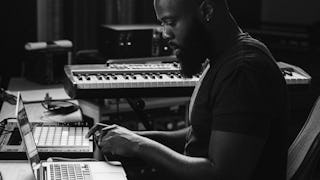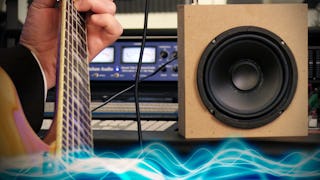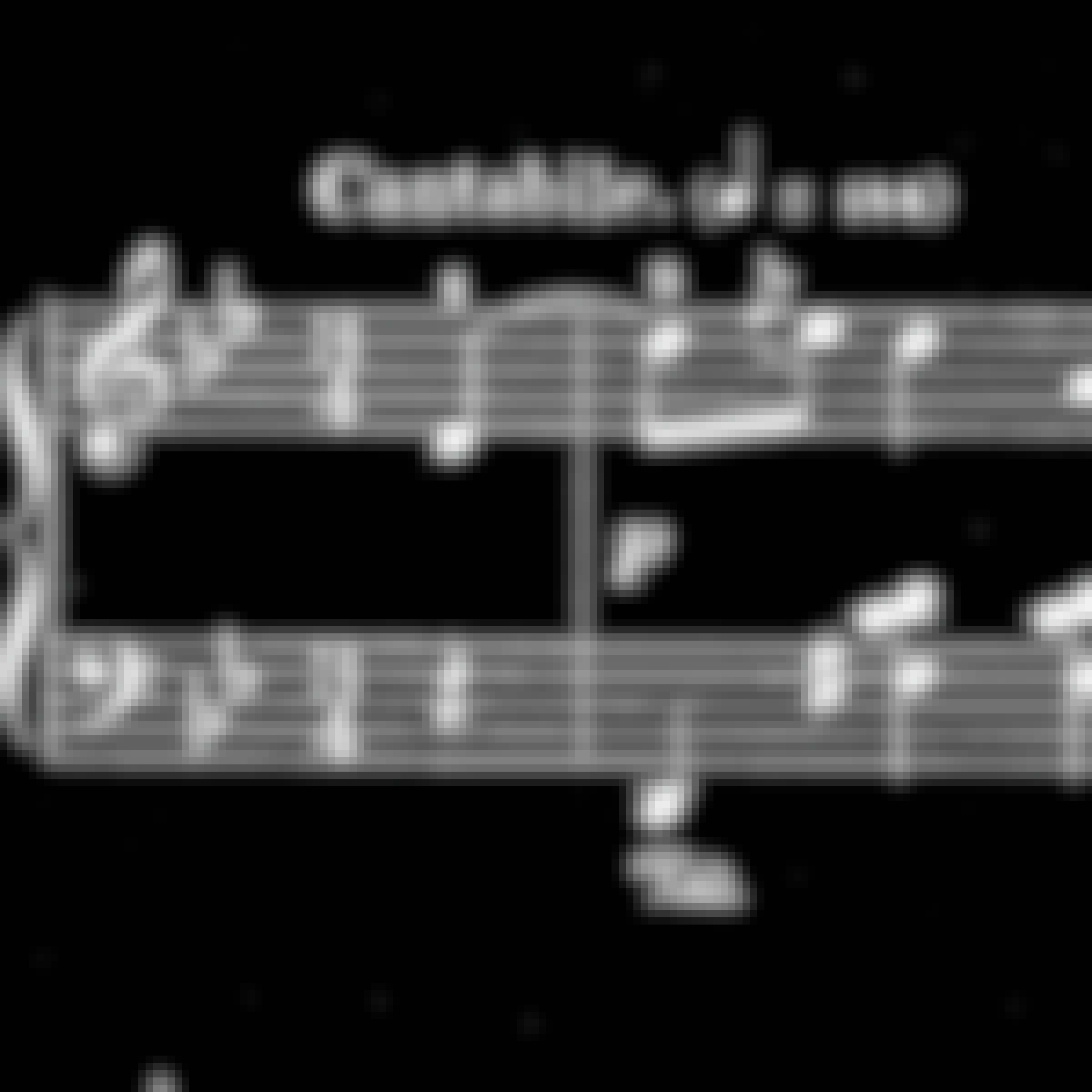Filter by
SubjectRequired
LanguageRequired
The language used throughout the course, in both instruction and assessments.
Learning ProductRequired
LevelRequired
DurationRequired
SkillsRequired
SubtitlesRequired
EducatorRequired
Explore the Music Technology Course Catalog
 Status: Free Trial
Status: Free TrialSkills you'll gain: Music, Media Production, Music Theory, Creativity, Content Creation, File Management, Editing
 Status: Free Trial
Status: Free TrialBerklee
Skills you'll gain: Music, Musical Composition, Post-Production, Peer Review, Media Production, Music Theory, Music Performance, Editing, Creativity, Instrumental Music, Writing, Timelines, File Management, Content Creation, Technology Solutions
 Status: Free Trial
Status: Free TrialBerklee
Skills you'll gain: Musical Composition, Music Performance, Music, Music Theory, Instrumental Music, File Management, Performing Arts, Media Production, Design Thinking, Creativity, Electronic Media, Design Software, Content Creation, Automation, Editing, Technical Support, System Requirements
 Status: Free Trial
Status: Free TrialBerklee
Skills you'll gain: File Management, Music, Automation, Editing, Technical Support, Creativity
 Status: Free Trial
Status: Free TrialBerklee
Skills you'll gain: Music History, Intellectual Property, Music, Business Management, Business, Team Building, Entrepreneurship, Law, Regulation, and Compliance, Digital Transformation
 Status: Preview
Status: PreviewUniversity of Rochester
Skills you'll gain: Basic Electrical Systems, Music, Electrical Engineering, Electronics, Electronic Components, Electronics Engineering, Electrical Systems, Instrumental Music, Vibrations, Equipment Design, Construction, Mechanical Design
What brings you to Coursera today?
 Status: Free Trial
Status: Free TrialBerklee
Skills you'll gain: Music Performance, Music, Music Theory, Editing, Performance Tuning, Peer Review

Michigan State University
Skills you'll gain: Music Theory, Music, Musical Composition, Classical Music
 Status: Preview
Status: PreviewSkills you'll gain: Music Theory, Music, Instrumental Music, Music Performance, Creativity, Coordination
 Status: Free
Status: FreeUniversitat Pompeu Fabra of Barcelona
Skills you'll gain: Music, Music Theory, Open Source Technology, Data Analysis Software, Python Programming, NumPy, Numerical Analysis, Computer Programming Tools
 Status: Free Trial
Status: Free TrialBerklee
Skills you'll gain: Music, Music Theory, Musical Composition, Education Software and Technology, Peer Review, Instrumental Music, Teaching, World Music, Classroom Management, Music Performance, Media Production, Cultural Responsiveness, Oral Expression, Writing, Cultural Diversity, Creativity, Empowerment, Collaboration, Constructive Feedback, Storytelling
 Status: Free Trial
Status: Free TrialBerklee
Skills you'll gain: Musical Composition, Music Theory, Peer Review, Music, Music Performance, Creativity
Music Technology learners also search
In summary, here are 10 of our most popular music technology courses
- The Technology of Music Production: Berklee
- Music Production: Berklee
- Electronic Music Production: Berklee
- Introduction to Ableton Live: Berklee
- Music Business Foundations: Berklee
- Fundamentals of Audio and Music Engineering: Part 1 Musical Sound & Electronics: University of Rochester
- The Art of Vocal Production: Berklee
- Getting Started With Music Theory: Michigan State University
- Piano Techniques for Modern Music: Berklee
- Audio Signal Processing for Music Applications: Universitat Pompeu Fabra of Barcelona










